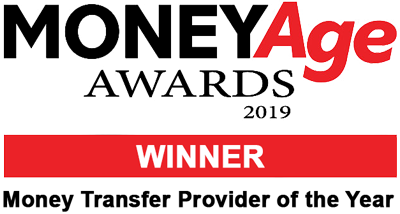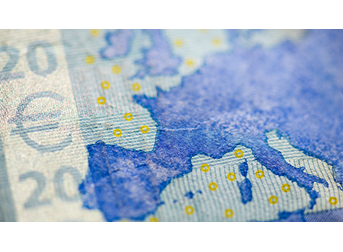Doing business in Ireland
Quick, simple and transparent international transfers in euros



How we can help your business makes its money transfers to and from Ireland
Forward Contract
Forwards allow you to buy currency on an agreed future date at a pre-fixed rate. This may require a deposit and allows you to lock in a rate for up to two years.*
Spot Contract
This is an agreement between you and your FX provider to buy currency at the present exchange rate and can be used for imminent payments.
FX Orders
If you need a particular exchange rate but have no urgency to purchase straight away, an FX order could help you secure a better deal.
FX Options
Designed for foreign exchange rate management, options can be created as a bespoke solution for your business and its payment needs.**
Guide to setting up a business in Ireland
Why start a business in Ireland
In 2013, Forbes named Ireland the best small country in the world in which to do business. Since then, Ireland has continued to build a strong reputation for worldwide. As the only remaining English-speaking country in the EU, doing business in Ireland is appealing to major corporations including Apple, Google, Pfizer and Facebook as a location for European headquarters.
Low corporate taxation and regulation mean that setting up a business in Ireland continues to appeal and the thriving knowledge economy has built an innovative and dynamic environment that is attracting investors and start-ups.
International trade and increasing foreign direct investment are priorities in Ireland, which means that Irish business is appealing for foreigners, but it still requires research and local knowledge to navigate the commercial and regulatory environment.
What are the main industries in Ireland?
Ireland is a knowledge economy, which makes for a dynamic environment and much of the focus in this relatively small country is on exports. Industry has overtaken agriculture and now accounts for roughly 80% of exports and 46% of GDP. As well as IT and service industries, some of the biggest industries in Ireland rely on expertise in areas such as technology, pharmaceuticals, chemicals, instruments and machinery.
The country is rich in natural resources, which means agriculture, forestry, mining and fishing are all important business sectors in Ireland, while food exports include some high-value brands. Ireland is one of the world’s biggest exporters of lead and zinc by volume. Among the fastest-growing industries, medical technology and pharmaceuticals are two that are attracting innovation and start-ups and Ireland is one of the largest exporters in these fields.
The arrival of major players in the tech space such as Twitter, Amazon and eBay, all with premises in Dublin, has also attracted a high number of supplementary ICT and software start-ups. Software and related services and solutions account for a significant proportion of industry exports. There has also been a resurgence of financial services following the financial crisis in 2008 and there has been significant growth due to the UK’s departure from the EU as major firms look to relocate from London to ensure continued access to the EU’s financial and regulatory system.
For the latest updates regarding Brexit and what it will mean for different business sectors in Ireland, visit our Brexit Hub.
How to register your business in Ireland
Firstly, your business will need to be registered with the Companies Registration Office (CRO), while it's worth obtaining legal and financial advice on which legal structure will work best for your business.
For simplicity, registering as a sole trader in Ireland may be the right choice – you will be required to register as self-employed with the tax office and register your business name with the CRO. This does have the most liability; if your business fails, your personal assets will be at risk to pay creditors. A partnership shares that risk between more individuals, and a legal partnership agreement should be drawn up by a solicitor.
Registering in Ireland as a limited company ensures a separate legal identity, which has less liability. As well as registration with the CRO, a limited company is required to file company accounts every year. Whichever option works best for your business model, take note of the different processes. Business registration in Ireland takes about a week to process, but preparing all the documentation may take longer to ensure there are no delays. A limited company will require a registered address in Ireland, which is another factor to consider.
How much is corporation tax in Ireland?
While not the tax haven that it is sometimes believed to be, Ireland does have low taxation and a relatively light regulatory environment. Corporation tax in Ireland is 12.5%, while revenue related to patents and intellectual property is 6.25%. This makes the country very appealing to innovative new start-ups and companies making significant investments in R&D.
Ireland has tax treaties in place with over 70 countries and foreign multinationals pay an aggregate Effective Tax Rate (ETR) of 2.2 to 4.5% on global profits that have been moved to Ireland using these bilateral tax treaties. The requirements for this are complex, but as a result of the rules, Ireland has the highest base erosion and profit shifting (BEPS) flows in the world. There are, in addition, some offshore revenue tax exemptions which have been in place since the 1950s and are the reason for Ireland’s reputation as a haven.
What are the challenges of conducting business in Ireland?
Business in Ireland for foreigners presents a specific challenge because there are residency requirements for at least one of the company directors. Exports form a major part of the economy but international trade can present risks of doing business in Ireland. It takes an average of seven days to export goods and 12 days to import goods, each requiring four separate documents and a significant business resource.
There is an Immigrant Investor Programme (IIP), which is designed to support non-EEA investors planning to start a business in Ireland with the aim of remaining in country. A working visa would still be required, but the IIP can provide support for a visa application. The programme is divided into four different categories – enterprise investment of a minimum €1m aggregate investment into a new or existing Irish business, an investment of €1m into an investment fund for a minimum of three years, a minimum €2m investment in a Real Estate Investment trust (REIT) or an endowment of at least €500,000 to project that benefits the arts, sports, health, culture or education.
There is also a start-up entrepreneur programme which welcomes expats, including non-EU citizens and can support a visa application. Detailed plans of the business and minimum funding of €50,000 are required and business plans should demonstrate that the venture is a new product or service less than five years old, has international appeal, is involved in manufacturing or services with export potential, is projected to create at least ten jobs in Ireland, will generate €1m total sales over four years, is headquartered in Ireland and is led by an experienced management team. This means you’ll need a very clear plan of your business before you can make the visa application, but that application will also apply to your partner and any dependent children. If approved, you’ll receive an initial two year visa with options to extend or apply for residency after five years.
Get in touch & learn more about how we can send money to and from Ireland



